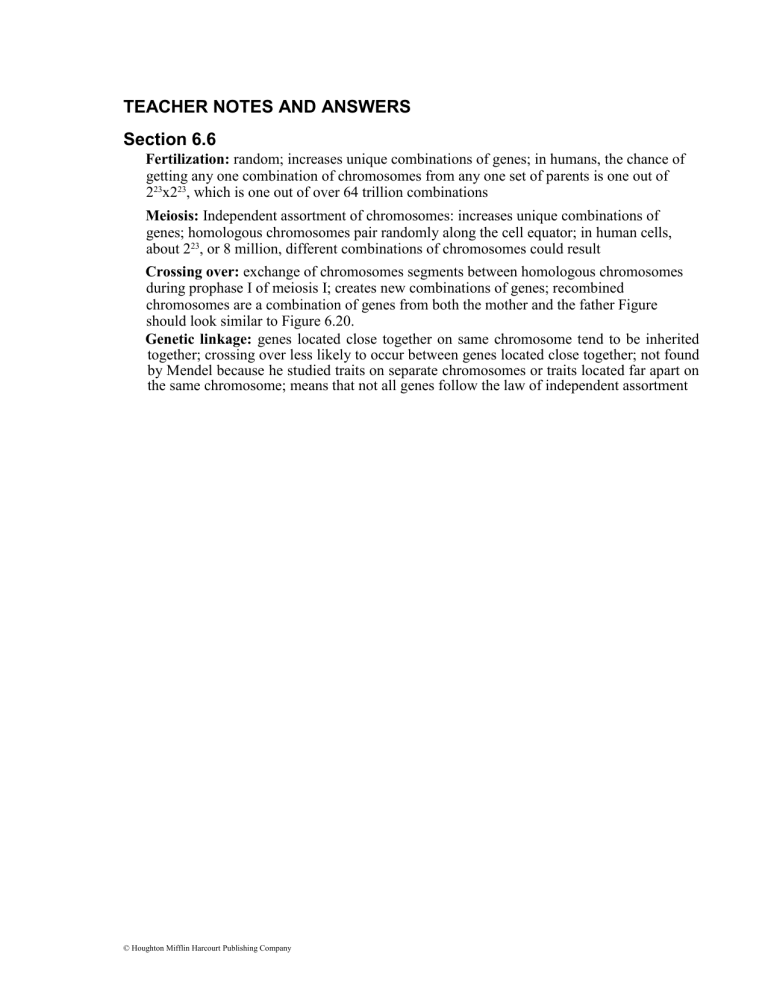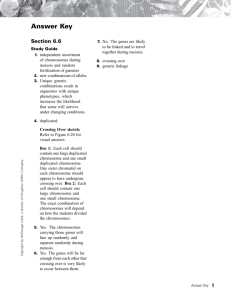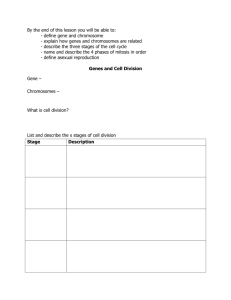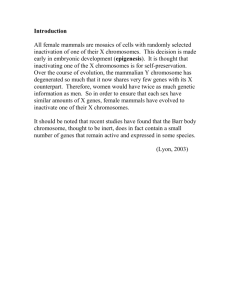
TEACHER NOTES AND ANSWERS Section 6.6 Fertilization: random; increases unique combinations of genes; in humans, the chance of getting any one combination of chromosomes from any one set of parents is one out of 223x223, which is one out of over 64 trillion combinations Meiosis: Independent assortment of chromosomes: increases unique combinations of genes; homologous chromosomes pair randomly along the cell equator; in human cells, about 223, or 8 million, different combinations of chromosomes could result Crossing over: exchange of chromosomes segments between homologous chromosomes during prophase I of meiosis I; creates new combinations of genes; recombined chromosomes are a combination of genes from both the mother and the father Figure should look similar to Figure 6.20. Genetic linkage: genes located close together on same chromosome tend to be inherited together; crossing over less likely to occur between genes located close together; not found by Mendel because he studied traits on separate chromosomes or traits located far apart on the same chromosome; means that not all genes follow the law of independent assortment © Houghton Mifflin Harcourt Publishing Company Holt McDougal Biology Meiosis and Mendel Name: _____________________________ Class: __________________ Date: __________________ Section 6: Meiosis and Genetic Variation PowerNotes Genetic Diversity • Fertilization: • Meiosis: • Crossing over: Crossing over: Exchange: Occurs: Results in: © Houghton Mifflin Harcourt Publishing Company Holt McDougal Biology Meiosis and Mendel



